Traveling Medical

How can women ensure they have access to medical care and support in case of illness or injury while traveling ?
How Can Women Ensure They Have Access to Medical Care and Support in Case of Illness or Injury While Traveling? Traveling can be an exciting adventure, but it's important to ensure that you have access to medical care and support in case of illness or injury. Here are some tips for women to ensure they have access to medical care while traveling: 1. Research Before You Go: Before embarking on your journey, research the local healthcare system and facilities. Look for hospitals, clinics, and pharmacies in the area you will be visiting. Make a list of emergency numbers and keep them with you at all times. 2. Get Travel Insurance: Consider purchasing travel insurance that includes medical coverage. This will give you peace of mind knowing that you are covered in case of an unexpected illness or injury. 3. Pack a First Aid Kit: Pack a first aid kit with essential items such as bandages, antiseptic wipes, pain relievers, and any prescription medications you may need. It's also a good idea to bring along copies of your prescriptions in case you need to refill them while traveling. 4. Stay Healthy: Take steps to stay healthy while traveling. Wash your hands frequently, eat nutritious meals, drink plenty of water, and get enough sleep. Avoid risky behaviors such as excessive alcohol consumption or participating in dangerous activities without proper safety gear. 5. Seek Help When Needed: If you do become ill or injured while traveling, don't hesitate to seek medical attention. Many countries have English-speaking doctors and nurses who can provide assistance. If you are unable to communicate effectively with local healthcare providers, consider using translation services or seeking out expatriate communities for support. In conclusion, ensuring access to medical care and support while traveling is crucial for women's health and safety. By doing your research beforehand, getting travel insurance, packing a first aid kit, staying healthy, and seeking help when needed, you can enjoy your travels with peace of mind knowing that you are prepared for any potential emergencies.
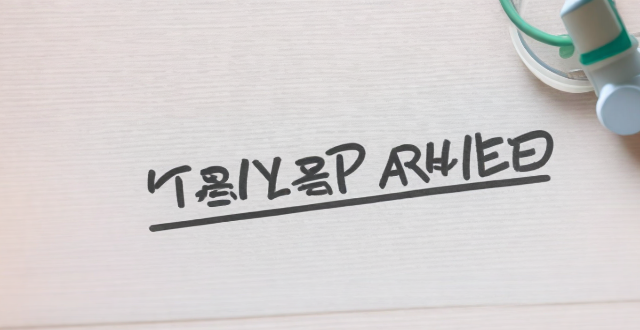
How can I be prepared for medical emergencies while traveling abroad ?
This text provides advice on how to be prepared for medical emergencies while traveling abroad. It suggests researching healthcare options, getting travel insurance, packing a travel medicine kit, learning basic first aid, knowing emergency numbers, staying healthy, and keeping important information handy.

How do I navigate dietary restrictions while traveling ?
How to navigate dietary restrictions while traveling When traveling with dietary restrictions, it's important to do your research beforehand, pack snacks, be flexible, ask for substitutions, and take care of yourself. Researching your destination can help you find restaurants that cater to your needs, while packing snacks will ensure you have something to eat on the go. Being open-minded about new foods and flavors is also key, as well as asking for substitutions if needed. It's important to be aware of hidden ingredients in dishes and to take care of yourself both physically and mentally during your trip. By following these tips, you can navigate dietary restrictions while traveling with ease and enjoy your trip without any worries.

What are some tips for eating street food safely while traveling ?
When traveling, street food can be a delightful way to explore new flavors and cultures. However, it's essential to take precautions to ensure that your culinary adventures don't lead to illness. Here are some tips for eating street food safely while traveling: 1. Research Before You Go 2. Look for Cleanliness 3. Choose Busy Vendors 4. Stick to Cooked Foods 5. Avoid Raw Produce 6. Drink Bottled Beverages 7. Watch How the Food is Cooked 8. Trust Your Instincts
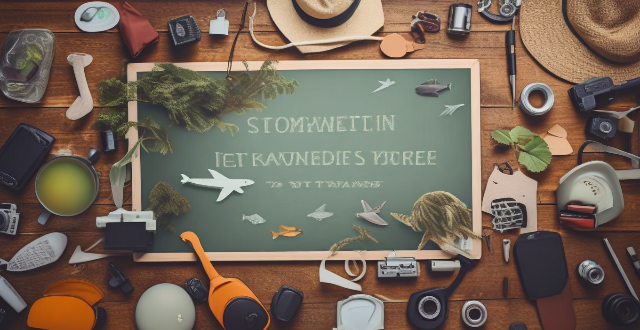
What are the best ways to avoid pickpockets and theft while traveling ?
When traveling, it's important to take precautions to avoid pickpockets and theft. Research your destination, keep valuables close, stay aware of your surroundings, don't flash your valuables, trust your instincts, use locks and safes, be careful with your phone and camera, and consider travel insurance. By following these tips, you can reduce the risk of falling victim to pickpockets and theft while traveling.

How can women deal with sexual harassment or unwanted attention while traveling ?
Dealing with Sexual Harassment or Unwanted Attention While Traveling: - Be Aware of Your Surroundings - Dress Appropriately - Use Body Language - Learn Key Phrases in the Local Language - Keep Your Belongings Close - Stay in Groups - Trust Your Instincts - Seek Help When Needed - Document the Incident - Report Incidents When Appropriate

Is it safe to carry large amounts of cash when traveling ?
When it comes to traveling, there are a variety of considerations that must be taken into account. One such consideration is whether or not it is safe to carry large amounts of cash while on the go. In this article, we will explore the potential risks and benefits associated with carrying large sums of money when traveling. One of the most significant risks associated with carrying large amounts of cash is the possibility of theft or robbery. This risk can be particularly high in areas where crime rates are high or in countries where pickpocketing and other forms of theft are common. Another risk associated with carrying large amounts of cash is the possibility of loss or disaster. For example, if your wallet or purse is lost or stolen, you may lose all of the cash that you were carrying with you. Similarly, if you are involved in an accident or natural disaster, your cash could be damaged or destroyed. Carrying large amounts of cash can also be risky due to fluctuating currency exchange rates. If you are traveling to a country with a different currency than your own, you may find that the value of your cash decreases over time as exchange rates change. Despite these risks, there are also some potential benefits to carrying large amounts of cash when traveling. These include convenience, no fees or charges, and accessibility in situations where other forms of payment may not be readily available. However, there are also several alternatives that travelers can consider, such as credit cards, debit cards, prepaid cards, and mobile payment apps like Apple Pay and Google Wallet. In conclusion, carrying large amounts of cash when traveling can be both risky and beneficial depending on various factors. While it may offer convenience and accessibility in certain situations, it also poses significant risks such as theft, loss, and fluctuating currency exchange rates. As such, travelers should carefully consider their options and weigh the potential benefits against the potential risks before deciding whether or not to carry large amounts of cash while on the go.

What are the most unique culinary experiences one can have while traveling ?
Traveling offers numerous opportunities to indulge in unique culinary experiences. Some of the most unique culinary experiences one can have while traveling include: 1. Trying traditional dishes and visiting local markets to sample street food and buy fresh produce. 2. Dining at authentic restaurants and participating in cultural festivals to learn about a country's food traditions. 3. Trying unusual foods such as insects, exotic fruits, and unusual meats, as well as sampling street food from different countries. 4. Tasting local wines and spirits, as well as enjoying traditional beverages that are an essential part of a country's culture. Overall, traveling allows people to step out of their comfort zone and try new things, including unique culinary experiences that are worth trying.

How can I treat a burn before seeking medical attention ?
Burns can be painful and potentially dangerous, especiallyBurns can be painful and potentially dangerous, especially cover a large area of the It's important to seek medical attention as soon as possible for any burn that is serious or covers a significant portion of your body. However, there are steps you can take to treat a burn before getting medical help. Here's what you should do: - Cool the Burn: Run cool (not cold) water over the burn for at least 10 minutes. Avoid putting ice directly on the burn. - Remove Heat Source: If the burn is due to contact with a hot object like a stove or iron, carefully remove the heat source without putting yourself at risk. - Remove Constricting Items: If any jewelry or clothing is near the burned area and might constrict as swelling occurs, remove it if possible without causing further injury. - Cover the Burn: After cooling the burn, gently cover it with a clean cloth or sterile dressing to protect it from infection and further injury. - Take Pain Relief: Over-the-counter pain relievers like ibuprofen or acetaminophen can help manage pain. Follow the instructions on the packaging and consult a healthcare professional if unsure. - Stay Hydrated: Drink plenty of fluids to prevent dehydration, which can occur more quickly when your skin is damaged. While the above steps can help with minor burns, it's crucial to seek medical attention for more serious burns. You should see a doctor for burns that are deeper than the top layer of skin (second-degree burns), cover an area larger than your hand, are on the face, hands, feet, groin, buttocks, or major joints, are caused by electricity, radiation, or chemicals, or show signs of infection such as increased redness, pain, or fever. Remember, these guidelines are for initial first aid and should never replace professional medical advice. Always seek medical attention for serious burns as soon as possible.

How do I find authentic ethnic restaurants when traveling abroad ?
Finding authentic ethnic restaurants while traveling abroad is a great way to immerse oneself in different cultures. Here's how you can find genuine ethnic restaurants during your travels: 1. Research before you go by reading reviews online, joining travel forums, and consulting local food blogs. 2. Ask locals for recommendations, including hotel staff, taxi drivers, shopkeepers, and people in public spaces. 3. Observe the crowd and look for places filled with locals, especially during lunchtime. 4. Dine like a local by eating at off-peak hours, trying regional specialties, and ordering family-style. 5. Use technology such as apps and maps to search for highly-rated restaurants in the area and filter by distance or rating. 6. Be open to new experiences and step out of your comfort zone to try authentic cuisine that may be different from what you're used to. By following these steps, you'll increase your chances of finding truly authentic ethnic restaurants while traveling abroad. Enjoy your gastronomic adventures!
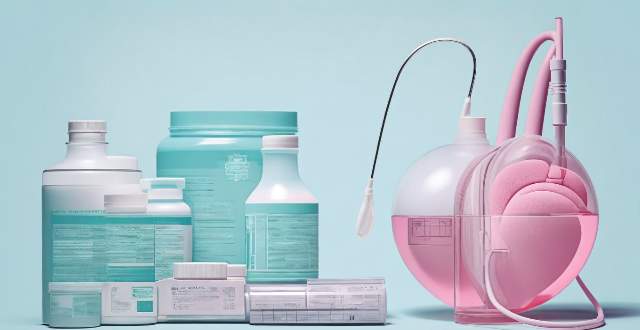
How can I customize my emergency kit for specific medical needs ?
Customizing an emergency kit for specific medical needs is crucial for individuals with health conditions. To tailor your kit, assess your medical needs, list down medications, and identify potential complications. Incorporate specialized equipment like diabetes management tools or heart condition medication. Include general first aid supplies, information cards, and instruction manuals. Don't forget communication tools and personal comfort items to alleviate stress during emergencies. Being prepared can significantly impact managing your health in disaster situations.

Is there a difference between PPE for medical use versus industrial use ?
The text discusses the differences between personal protective equipment (PPE) for medical use and industrial use. It explains that these differences mainly concern the level of protection required, the type of hazards encountered, and the specific features of the equipment designed to address those hazards. Medical professionals often deal with infectious diseases and thus require PPE that can protect them from pathogens like viruses and bacteria. This typically involves higher levels of protection, such as respiratory protection with N95 respirators or equivalent, which filter out airborne particles, and blood-borne pathogen protection with gloves, gowns, and face shields or goggles to prevent contact with blood and bodily fluids. Industrial workers face different types of hazards, including chemical exposure, physical injuries, and environmental factors. Their PPE tends to focus on chemical protection with protective suits, gloves, and boots made from materials resistant to specific chemicals or solvents, and physical protection with hard hats, safety glasses, and high-visibility clothing to prevent injuries from machinery or construction sites. The primary hazard in a medical setting is biological agents, such as viruses, bacteria, and other pathogens that may be present in patients' blood or other bodily fluids. Workers in industrial settings face a variety of hazards, including but not limited to chemical exposure from handling toxic substances, physical dangers from heavy machinery and equipment operation, and environmental risks such as extreme temperatures or noise pollution. PPE for medical use often includes features like fluid resistance with materials that are impermeable to liquids to prevent contamination, antimicrobial treatment with some PPE items having an antimicrobial coating to reduce the growth of microorganisms, and compatibility with other medical equipment designed to be used in conjunction with other medical tools and devices without interference. PPE for industrial use emphasizes features like durability with materials that can withstand harsh conditions and repeated use, comfort and mobility often lighter and more flexible materials to allow for ease of movement over long periods, and specialized functionality such as gloves having enhanced grip or shoes having steel toes for added protection against physical impacts.
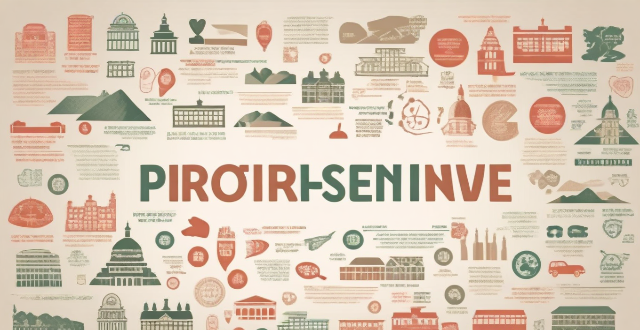
What steps should women take to research the safety of a destination before traveling ?
The provided text offers a comprehensive guide for women to research the safety of a destination before traveling. The steps include online research such as checking government travel advisories and joining travel forums, seeking professional advice from travel agents and security experts, planning ahead by making copies of important documents and informing someone about your itinerary, packing smart with items like personal alarms and door stop alarms, being prepared on the ground by dressing appropriately and learning basic phrases in the local language, and trusting your instincts to avoid potentially dangerous situations. By following these steps, women can enhance their safety while traveling and be better informed about potential risks.

What are some essential travel safety tips for international tourists ?
Traveling to a foreign country can be an exciting adventure, but it's important to prioritize safety during your journey. Here are some essential travel safety tips for international tourists: ## Research Your Destination Before embarking on your trip, research the destination thoroughly. Familiarize yourself with local customs, laws, and cultural norms. This will help you avoid any misunderstandings or unintentional offenses that could put you in harm's way. ### Learn Basic Phrases in the Local Language Knowing how to say simple phrases like "hello," "goodbye," "thank you," and "I don't understand" in the local language can go a long way in helping you communicate with locals and navigate your way around. ### Check the Weather Forecast Be prepared for any weather conditions by checking the forecast before you leave. Pack appropriate clothing and gear to ensure your comfort and safety throughout your trip. ## Stay Informed About Safety Concerns Stay up-to-date on any safety concerns or travel warnings related to your destination. The U.S. Department of State maintains a website with current information on safety issues and advisories for travelers. ### Register With Your Embassy or Consulate Register your travel plans with your embassy or consulate so they can contact you in case of an emergency or natural disaster. This is especially important if you plan to visit remote areas where communication might be limited. ## Be Cautious With Your Belongings When traveling abroad, it's crucial to take precautions to protect your belongings from theft or loss. Here are some tips to keep your valuables safe: ### Keep Your Valuables Close at Hand Carry only what you need when sightseeing or exploring new places. Keep your passport, cash, credit cards, and other valuables secure in a money belt or hidden pocket. ### Use Hotel Safes Wisely Hotel safes are convenient for storing valuable items while you're out and about. However, be aware that not all hotel safes are foolproof. Some may have vulnerabilities that could allow thieves to access your belongings. Always exercise caution when using hotel safes and consider bringing along a portable lock for added security. ### Be Mindful of Your Surroundings Stay alert and aware of your surroundings at all times. Avoid displaying expensive jewelry or electronics in public places, as these items can attract unwanted attention from pickpockets and thieves. If possible, try to blend in with the local crowd by dressing conservatively and avoiding flashy accessories. ## Follow Local Laws and Customs Respecting local laws and customs is essential for staying safe while traveling abroad. Here are some tips to help you navigate this aspect of international travel: ### Obey Local Laws Familiarize yourself with the legal system and laws of the country you're visiting. This includes understanding the penalties for breaking the law, which can vary widely depending on the country. Remember that what might be legal in your home country could be illegal elsewhere. ### Respect Local Customs Be mindful of local customs and traditions when interacting with locals. Dress appropriately for religious sites and respect their rules regarding photography and behavior. Additionally, be aware of social norms regarding physical contact (such as handshakes or hugs) and follow them accordingly. ## Seek Medical Attention When Needed If you become ill or injured during your trip, seek medical attention promptly. Here are some tips to help you stay healthy while traveling: ### Pack a First Aid Kit Bring a basic first aid kit with essential items such as bandages, antiseptic wipes, pain relievers, and any prescription medications you might need. This will help you handle minor injuries and illnesses without having to search for medical supplies in an unfamiliar place. ### Know Where to Go for Medical Help Research nearby hospitals and clinics before you leave home so you know where to go if you need medical assistance during your trip. It's also a good idea to purchase travel insurance that includes coverage for medical emergencies.
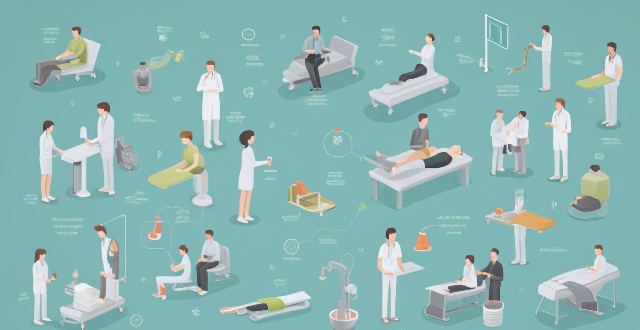
In what ways can virtual reality be utilized for medical training and therapy ?
Virtual reality is revolutionizing medical training and therapy by providing immersive, interactive experiences that simulate real-world scenarios. In medical training, VR offers hands-on practice in a safe environment, multisensory learning experiences, interactive anatomy education, and tools for surgical planning and collaboration. In therapy, it is used for pain management, motor skills rehabilitation, cognitive rehabilitation, mental health treatment, specialized interventions like ASD therapy, and neurorehabilitation. The potential of virtual reality in healthcare is vast, with ongoing technological advancements expected to bring further innovations in this field.

What are the benefits and challenges of using drones for medical supply delivery ?
**Benefits of Using Drones for Medical Supply Delivery:** - **Increased Efficiency:** Drones can cover large distances quickly and bypass obstacles. - **Accessibility to Remote Areas:** Ideal for reaching rural or disaster-affected regions. - **Cost Savings:** Lower manpower and operational costs compared to traditional methods. - **Improved Safety:** Eliminates human errors and operates in hazardous conditions. - **Real-Time Tracking:** Ensures accountability and peace of mind for senders and recipients. **Challenges of Using Drones for Medical Supply Delivery:** - **Regulatory Issues:** Strict regulations and complex permit processes limit drone operations. - **Technical Constraints:** Limited load capacities, battery life, and weather conditions affect reliability. - **Security Concerns:** Risks of interception and tampering with cargoes. - **Public Perception:** Addressing privacy concerns and gaining public acceptance is essential. - **Infrastructure Development:** Significant investment required for support infrastructure.

How important is it to have a portable emergency kit when traveling abroad ?
**The Importance of a Portable Emergency Kit for Traveling Abroad** Embarking on an international journey requires preparation, especially in handling unforeseen events. Here's why carrying a portable emergency kit is crucial: 1. **Preparedness for Unexpected Circumstances**: It helps manage medical emergencies, natural disasters, and travel delays effectively. 2. **Components of an Ideal Emergency Kit**: Includes first aid supplies, hygiene items, nutrition, lighting, important documents, and protective gear. 3. **Customization Based on Destination**: Tailor the kit to climate considerations and location-specific needs for better preparedness. 4. **Peace of Mind**: Being prepared offers peace of mind, allowing focus on enjoying the trip rather than worrying about potential issues.

What are some tips for traveling alone during adventure travel activities ?
Tips for traveling alone during adventure travel activities include researching your destination, packing appropriately, staying connected with friends and family, being aware of your surroundings, joining a tour group, and trusting your instincts.

Can you explain the concept of "radiation shielding" and its importance in radiation protection ?
Radiation shielding plays a critical role in radiation protection by using materials to absorb or deflect harmful radiation, thus reducing exposure levels. This concept is essential in industries such as nuclear power generation, medical imaging, and space exploration, where high radiation levels pose risks. Radiation shielding is important for human health protection, safety in nuclear facilities, medical applications, space exploration, and environmental conservation. Various materials are used for radiation shielding, including lead, concrete, water, polyethylene, tungsten, and boron, each effective against specific types of radiation.

What precautions should be taken while traveling during the COVID-19 pandemic ?
The text provides a comprehensive list of precautions to take while traveling during the COVID-19 pandemic. These include monitoring health, maintaining hand hygiene, wearing face coverings, practicing social distancing, using respiratory etiquette, cleaning and disinfecting surfaces, ensuring food safety, organizing travel documentation, choosing safe accommodations and transportation, and staying informed about the latest information on COVID-19. By following these guidelines, travelers can help protect themselves and others from the virus.
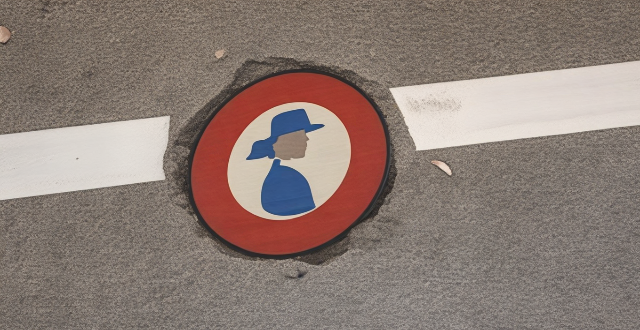
What are the top safety tips for women traveling alone ?
Traveling alone as a woman can be empowering, but safety is crucial. Research your destination, stay connected with friends and family, choose accommodations carefully, dress appropriately, trust your instincts, and consider carrying self-defense tools. Stay prepared, aware, and confident to handle unexpected situations.
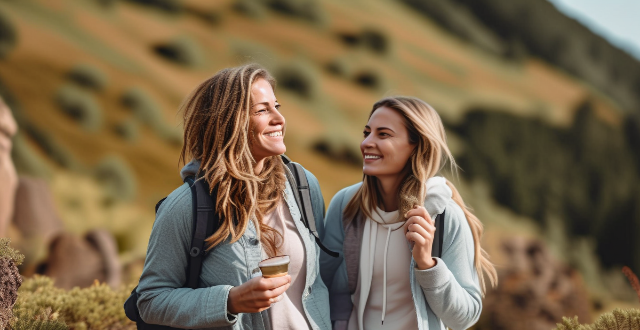
What are the best ways for women to avoid dangerous situations while on a trip ?
The article provides a comprehensive guide for women to stay safe while traveling. It emphasizes the importance of researching the destination, staying connected, trusting instincts, keeping belongings safe, being aware of surroundings, traveling with friends or joining groups, and learning self-defense techniques. Each section offers key points that highlight specific actions women can take to ensure their safety during their travels.

What vaccinations should I get before traveling to Africa ?
When planning a trip to Africa, it's essential to consider the necessary vaccinations to ensure your health and safety. The continent is vast, and the required immunizations can vary depending on which countries you will visit. Here are some general recommendations: - Yellow Fever Vaccine - Polio Vaccine - Hepatitis A Vaccine - Hepatitis B Vaccine - Rabies Vaccine - Meningococcal Meningitis Vaccine - Typhoid Fever Vaccine - Japanese Encephalitis Vaccine - Cholera Vaccine - Malaria Prevention It's crucial to consult with a healthcare provider or a travel medicine specialist at least 4-6 weeks before your trip to discuss your individual needs based on your itinerary, duration of stay, and personal medical history. They can provide personalized recommendations and ensure you have all the necessary vaccinations for a safe journey.

What is the correct procedure for treating someone who has fainted ?
The text provides a detailed procedure for treating someone who has fainted, emphasizing the importance of ensuring safety, checking responsiveness, calling for help, proper positioning, loosening clothing, checking breathing and pulse, moving to recovery position, and seeking medical attention. It stresses that these steps are a general guideline and professional medical assistance should always be prioritized, especially if the person does not regain consciousness quickly or shows signs of severe distress.

How can I stay safe while traveling alone in a new city ?
When traveling alone in a new city, prioritizing your safety is crucial. Here are some tips to help you stay safe while exploring unfamiliar places: - Research your destination and learn about its culture, customs, and potential dangers. Check for any travel advisories or warnings issued by your government. - Be prepared by having all necessary documents, such as passports, visas, and travel insurance. Keep copies of important documents in a separate place from the originals. - Stay connected with loved ones back home and keep them updated about your whereabouts. Use a reliable mobile network or Wi-Fi to maintain communication. - Trust your instincts and avoid situations that make you feel uncomfortable or unsafe. If something doesn't feel right, remove yourself from the situation immediately. - Take precautions with money and valuables by using a money belt, carrying only what you need, and avoiding displaying wealth in public. - Be aware of your surroundings at all times. Pay attention to exit routes, suspicious individuals, and any potential threats. - Use reputable transportation services like licensed taxis or ride-sharing apps. Avoid accepting rides from strangers or unmarked vehicles. - Dress appropriately for the local culture and climate. Avoid wearing flashy clothing or accessories that could attract unwanted attention. By following these tips, you can significantly reduce the risks associated with traveling alone in a new city and enjoy a safe and memorable adventure.

How can I save money while traveling abroad ?
The text offers advice on saving money while traveling abroad. It suggests planning ahead, using public transportation, eating local food, staying in hostels or Airbnbs, using free Wi-Fi, shopping at local markets, taking advantage of discount cards, and avoiding peak season as ways to reduce costs without sacrificing the travel experience.
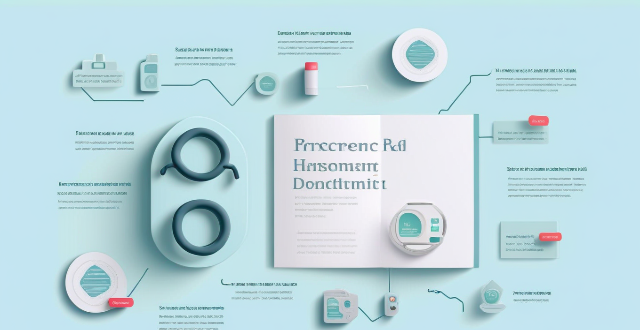
Are pre-existing medical conditions covered by travel insurance ?
Travel insurance coverage for pre-existing medical conditions varies by policy and provider. Factors influencing coverage include the type of policy, deductibles and limits, waiting periods, and disclosure of information. Some policies offer limited or comprehensive coverage for these conditions, while others exclude them altogether. It is crucial to research different policies and consult with an insurance professional to find the best coverage for your individual needs.

What are some good habits for green living while traveling ?
Adopting eco-friendly habits while traveling can help reduce your carbon footprint and contribute to sustainable tourism. Here are some good habits for green living while traveling: 1. Plan ahead by researching local recycling facilities, public transportation options, and eco-friendly accommodations. 2. Choose eco-friendly accommodations with energy-efficient lighting, water-saving showerheads, and recycling programs. 3. Use public transportation instead of renting a car or taking taxis to reduce greenhouse gas emissions and save money on transportation costs. 4. Bring reusable items such as water bottles, shopping bags, and utensils to reduce plastic waste while traveling. 5. Support local businesses by eating at locally owned restaurants, shopping at farmers' markets, and purchasing souvenirs made by local artisans. 6. Choose sustainable tourism activities that promote conservation and responsible tourism, such as guided nature walks and wildlife safaris. 7. Respect wildlife and nature by staying on designated trails, not littering, and not disturbing animals. 8. Save energy and water by turning off lights and electronics when not in use, taking shorter showers, and using energy-efficient appliances if available.

What are some tips for traveling with toddlers ?
Traveling with toddlers can be a rewarding experience if you prepare well. Pack essential and convenience items, plan ahead for flights and accommodations, stay flexible during the trip, and prioritize safety measures. By following these tips, you can make your journey more enjoyable for both you and your little one.
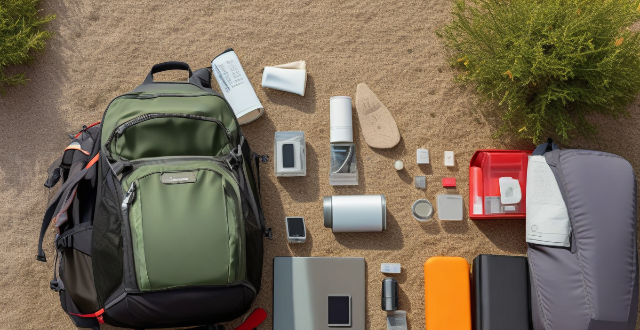
How can I avoid overpacking when traveling by air ?
Overpacking is a common problem when traveling by air, but it can be avoided with careful planning and organization. To avoid overpacking, make a packing list, choose versatile clothing, pack layers, roll your clothes instead of folding them, use compression bags or packing cubes, bring only necessary toiletries, wear your bulkiest items on the plane, check the weather forecast before packing, and be realistic about what you'll actually wear. By following these tips, you can enjoy a stress-free trip without having to worry about lugging around too much stuff.